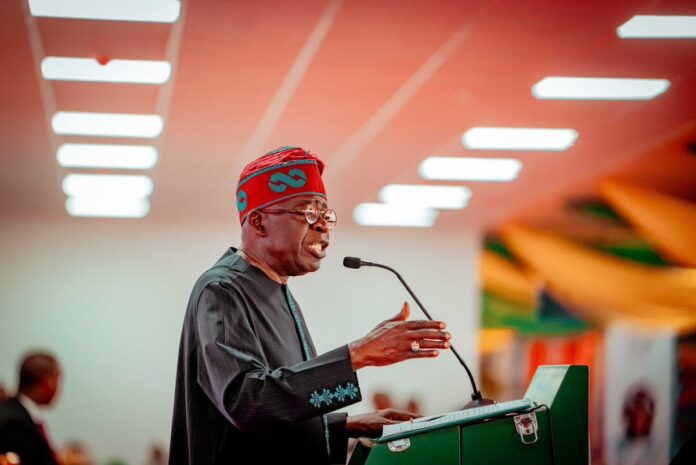The removal of fuel subsidies by President Bola Ahmed Tinubu’s administration is starting to yield positive results, according to Abdullahi Tanko Yakasai, Senior Special Assistant to the President on Community Engagement for the North West Zone.
Yakasai made these remarks during the flag-off ceremony for rice palliative distribution in Nassarawa Local Government Area of Kano State. The event, aimed at supporting vulnerable citizens, showcased the administration’s efforts to cushion the economic challenges resulting from recent policy decisions.
Bold Decisions for National Progress
Speaking to attendees, Yakasai acknowledged the hardships Nigerians are facing due to the removal of the fuel subsidy and the floating of the Naira. However, he emphasized that these measures were necessary for the nation’s long-term development.
“The hardship, yes, is caused by the removal of the fuel subsidy and the floating of the Naira,” Yakasai stated. “But these are programs that Mr. President took a bold step on because, since the inception of this democracy from 1999 to date, we have been giving out this subsidy, and it’s only going to the few.”
He explained that eliminating the subsidy was crucial to redirecting funds toward critical sectors such as infrastructure, agriculture, and healthcare. Yakasai highlighted the government’s commitment to improving the lives of ordinary Nigerians through targeted investments and reforms.
Reviving Nigeria’s Refineries
A key achievement of Tinubu’s administration, according to Yakasai, is the revival of Nigeria’s long-dormant refineries. For years, the nation depended on imported refined petroleum despite owning facilities capable of meeting domestic demand.
“For years, our refineries were down, and they have started working today, which means they refused to repair the refineries,” he said. “How much is the price for petrol now? It is dropping down by the day.”
He cited the Port Harcourt Refinery, now operating at 60% capacity, as a significant milestone. Yakasai also referenced the Warri Refinery, which has reportedly resumed operations under the supervision of the Nigerian National Petroleum Corporation (NNPC).
“Mele Kyari, the Group Managing Director of NNPC, recently took media houses and stakeholders to verify the progress. These are all things to tell you that His Excellency President Asiwaju Bola Ahmed Tinubu is so determined to turn around the fortune of this country,” Yakasai added.
Supporting the Vulnerable
Acknowledging the immediate impact of economic reforms on the lower-income population, Yakasai reiterated the government’s commitment to supporting vulnerable Nigerians. The distribution of rice palliatives is part of this effort.
“This is just a local government, and as we have 44 local governments in Kano, this is just the flag-off. We’ll go around all the 44 local governments and distribute this rice so that people will have it as palliative,” Yakasai said.
He disclosed that 200 bags of rice would be distributed to each local government, amounting to 4,400 bags for the entire state. The initiative targets grassroots communities, particularly party members and women.
“We’re not saying it will go around everyone, but the little that we can do, we’ll do to alleviate the suffering of the people,” Yakasai assured.
Contextual Background
The removal of the fuel subsidy, a policy that had been in place for decades, was announced by President Tinubu shortly after his inauguration. The move caused a surge in fuel prices, sparking nationwide debates and concerns over inflation.
Historically, the subsidy program aimed to keep fuel prices low for Nigerians. However, it became riddled with inefficiencies and allegations of corruption, with the benefits often failing to reach the intended population. Experts estimated that the government spent over $10 billion annually on subsidies, funds that could have been redirected to critical development projects.
The floating of the Naira, another controversial policy, has also significantly impacted the economy. While it has led to a weaker currency, it is expected to encourage foreign investment and stabilize the market in the long run.
Positive Signs Amid Challenges
Despite initial struggles, there are signs that the reforms may be yielding positive outcomes. The gradual reduction in fuel prices and the revival of domestic refineries are seen as critical steps toward self-sufficiency and economic stability.
Analysts have praised the government’s decision to reinvest savings from the subsidy removal into infrastructure and social programs. However, they caution that more needs to be done to cushion the impact on ordinary citizens.

